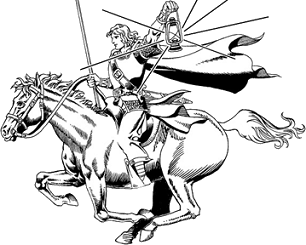WHY DO I NEED TO KNOW MATHEMATICS?
The study of mathematics is a cornerstone for any education. Simple addition, subtraction, multiplication and division are a daily part of our lives."How much money do I have?" "How much change do I get back?"
"Help me halve this recipe." "How many pieces of pizza do we each get?"
"What year will it be when I am ten years old?" "How tall am I? Let's measure me."
"Thirty minutes! How many hours is that?" "What does this thermometer say?"
We live our lives under the assumption that everyone can do basic mathematics. More advanced mathematics is also useful. For example, there is mileage and fuel consumption in a car, buying material to make a dress, and a home school mother figuring grades for her students. We haven't even begun to talk about uses for mathematics at work and business.
HOW TO THINK
One of the most important things we learn as a child is how to think.Listen to a young child tell about something that happened. The most exciting detail is told first, then the next most exciting detail. The story may not make sense to the listener, because it is a jumble of exciting details. An older child, or an adult, will tell a story from beginning to end, so that the flow of events can be understood by the listener. The older child, and the adult, has been taught to think and understand the world through the flow of events, one leading to another. What we do not realize is that the entire way we organize our thoughts is taught to us. We are not talking about worldview, we are talking about the very way we think. We are talking about our patterns of thought.
The study of mathematics teaches not only mathematics, but how to think. It teaches reason and logic. It teaches an organized, logical flow of ideas from beginning to conclusion. You may be surprised at how many people around the world do not have this type of thought process. Mathematics teaches how to determine truth and falsehood through objective means. For example, a wrong answer is a wrong answer, no matter where it came from or who said it. In many cultures throughout time, it is unthinkable for a student to have the right answer and the teacher to have the wrong answer. Yet the study of mathematics allows for an objective right and wrong, not based on social status or position.
The study of mathematics teaches us how to think.
1 MATHEMATICS AND HOW TO THINK (You are on this page)
2 WHICH MATHEMATICS CURRICULUM TO USE
3 WHAT TO BUY WHEN USING SAXON
HOW TO TEACH MATHEMATICS - Takes you to the Mathematics Curriculum section



